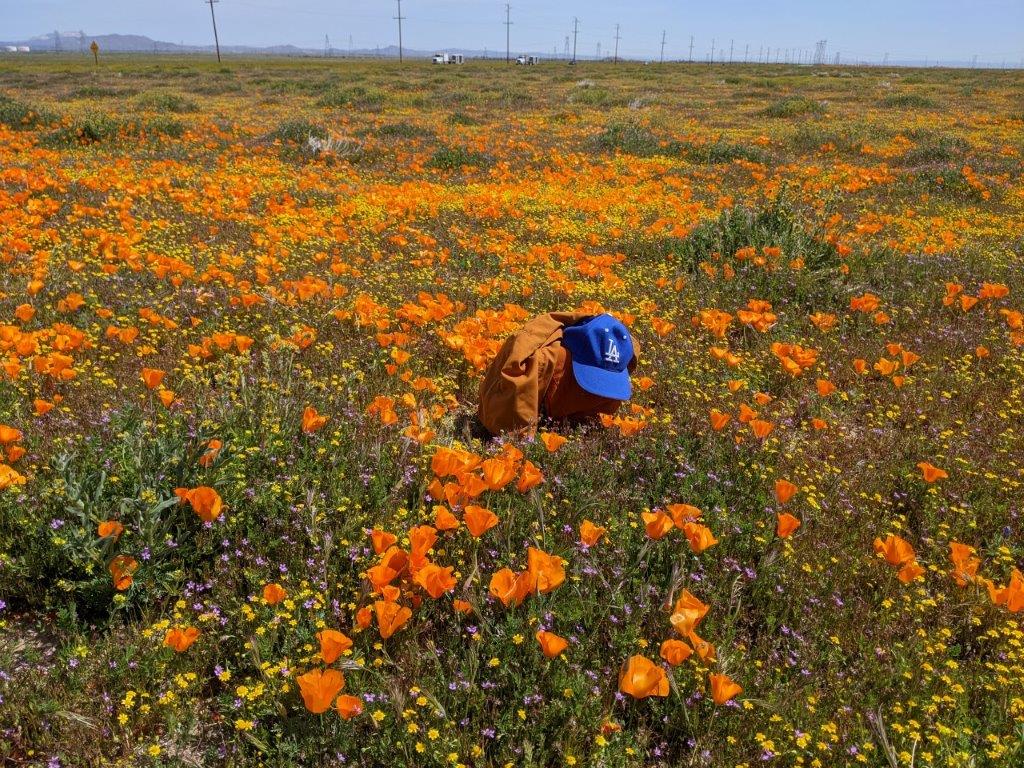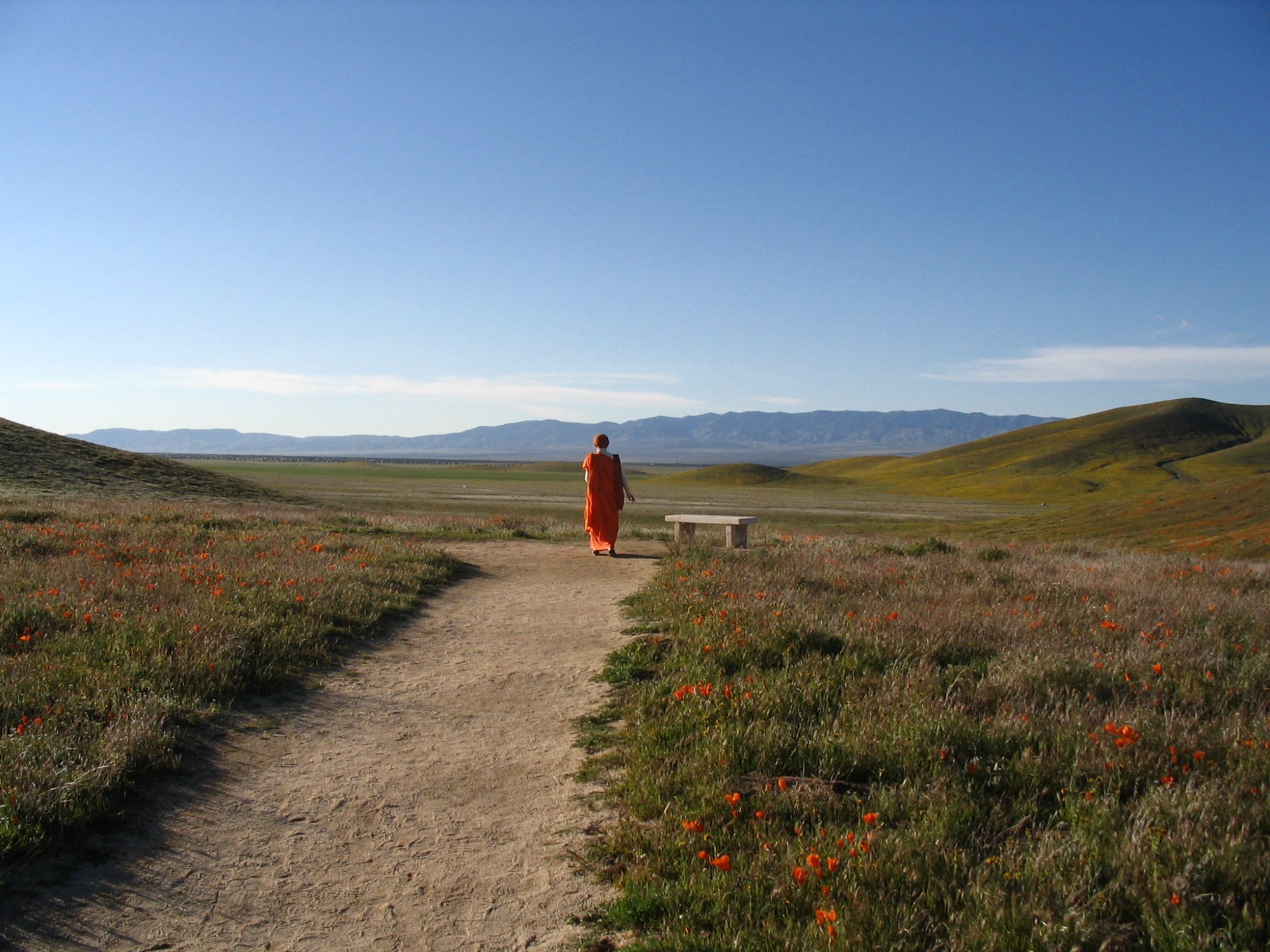We scattered Sensei’s ashes among the wild poppies of Antelope Valley on April 8th. Over the years, many of us brought him to view the poppies (about 4 times myself) so we felt it was a good place for him. While Buddhists believe a variety of things occur after death, one is that we go into an intermediate state of consciousness called the bardo, until our next rebirth. I believe that Sensei is in a realm with long periods of silent oneness, and I wonder if he has enough attachment to return or if he attained Anagami. April 8th was the perfect timing, as that is Hanamatsuri, the Japanese flower festival celebrating Buddha’s birth. This month (April 6th) we also had the Pink Moon, named for the N. American wildflower – Flox, and with all the rains we’ve had, the wildflowers are everywhere now. Then the next day was Western Christian Easter, commemorating the death and resurrection of Jesus and provides hope for spiritual salvation.
Sensei told me of a Japanese death poem of a defeated man forced to his death that went something like: “Lightning cuts the Spring breeze”, indicating that he cannot die because he is a Spring breeze. We often referred to merging into Nature with that metaphor, so in one of my last conversations with him, I told him he would be a Spring breeze. I put together some of his writing for the 7 of us at this occasion which you can read here. May we continue to live Sensei’s message to meditate, just breathe nicely, and be happy and strong. Many bows.


Mantis found the true reference to Spring Breeze (in Essays in Zen Buddhism – First Series 255 n.2). So grateful!
Cutting the Spring Breeze
乾坤無地卓孤筇
喜得人空法亦空
珍重大元三尺剣
電光影裡斬春風
(variant character 裏 instead of 裡)
Throughout Heaven and Earth there is not a piece of ground where a single stick could be inserted; I am glad that all things are void, myself and the world: Honored be the sword, three feet long, wielded by the great Yüan swordsmen; For it is like cutting a spring breeze in a flash of lightning.
Wu-hsüeh Tsu-yüan (無學祖元 Mugaku Sogen; also known as Fo-kuang Kuo-shih 佛光國師/Bukkõ Kokushi, 1226-1286) came to Japan when the Hõjõ family was in power at Kamakura. He established the Engakuji monastery, which is one of the chief Zen monasteries in Japan. While still in China his temple was invaded by soldiers of the Yüan dynasty, who threatened to kill him, but Bukkõ was immovable and quietly uttered this verse.
Additional references/translations:
(from Zen and Japanese Culture, 201-2)
There is not a room in the whole universe where one can insert even a single stick; I see the emptiness of all things—no objects, no persons. I admire the sword of the Great Yüan three feet in length:
[When it cuts at all,] it is like cutting the spring breeze with a flash of lightning.
The Mongolian dynasty (1260-1367) invaded China and replaced the Sung dynasty. [元 Yüan;宋 Sung]
(from The Spirit of Zen, 95)
The Heaven and Earth afford me no shelter at all; I’m glad, unreal are body and soul. Welcome thy weapon, O warrior of Yuan! Thy trusty steel, That flashes lightning, cuts the wind of Spring, I feel.
Wu-hsüeh Tsu-yüan’s poem is reminiscent of a poem by Seng-chao (僧肇 Sõjõ), a disciple of Kumarajiva, the founder of the San-lun (三論 Sanron) Sect of Buddhism. On the verge of death by a vagabond’s sword, Seng-chao expressed his feelings in the following verse:
In body there exists no soul.
The mind is not real at all.
Now try on me thy flashing steel,
As if it cuts the wind of Spring, I feel.
My son Ishmael and I were among his students, and he was a teacher that stood out from those who have the title. To honor him is to continue.
Metta,
Gazala